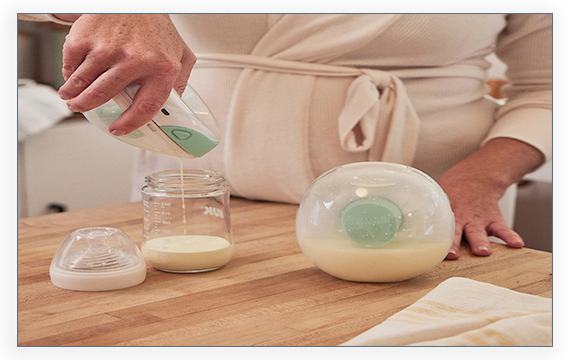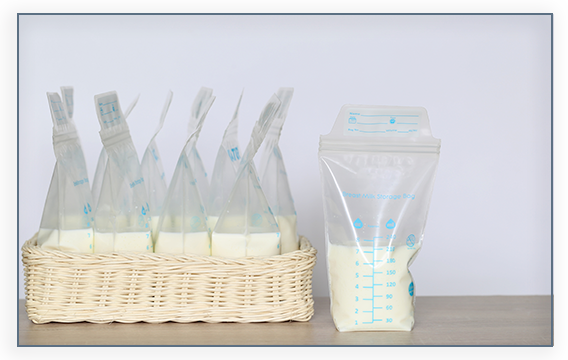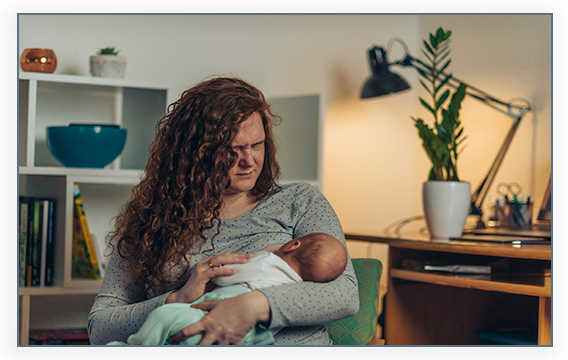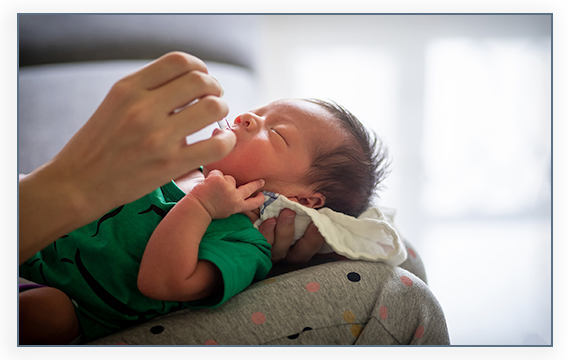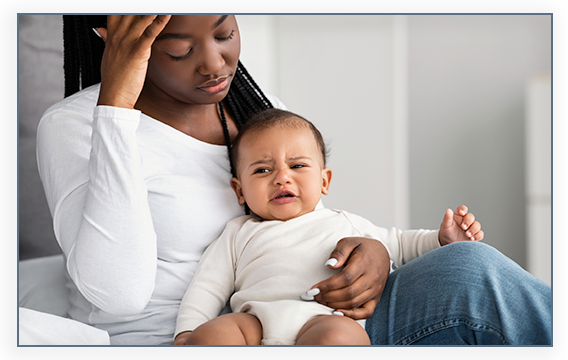Maintaining or Increasing Milk Supply While Working
Nursing is more than just providing nourishment for your baby; it is a time for bonding. Transitioning from being home to working again can be a difficult time for both you and your baby. Continuing nursing after going back to work can help with the transition of being apart during the work day.
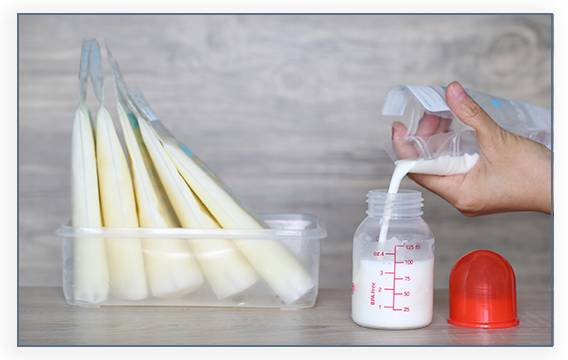
Returning to work will mean baby is at breast less, and you will likely have to pump to maintain your milk supply. It is recommended to express milk or pump every three hours while away from your baby. At first you may need to express/pump more frequently if you start to leak or feel uncomfortable. Full breasts and engorgement can slow milk production and are signs you may need to pump more often. Breasts are never truly empty of milk, so pumping and removing even small amounts of milk will increase production.
When you are with your baby, allow him/her to nurse on demand. The “in-between” comfort feeds can help your milk production. Once you are back to work, the first few weeks your baby will likely increase night-time feeds to make up for the lack of nursing during the day. Breastfeeding at night can help increase milk production since prolactin, the hormone that encourages milk production, is higher during night-time feedings. Breastfeeding on demand over the weekends and evening hours can help rebuild your supply, especially if you’ve noticed it decreasing when pumping during the week.
Have more questions? Listen to our FREE podcast!
LISTEN NOWIncreasing Milk Supply
- Adding one more pumping session can help with supply; a 5-minute pumping session is better than not pumping at all. If the pumping session you added is not producing milk, continue to pump at the same time each day, and within a few days you will see your supply gradually increase because pumping stimulates milk production.
- Ideally, each pumping session should be about 15 minutes on each breast. Continue to pump for 2-5 minutes after the last drops of milk come out. (Worried about how to store and use your pumped milk? Check out this post.)
- Try cluster pumping instead of pumping or nursing every few hours. Sit down with your pump and baby, and switch between nursing and pumping every half hour for several hours.
- Breast compressions can help stimulate let-downs when pumping and will help to thoroughly drain all milk from the ducts. While pumping, use one hand to massage breast from the armpit towards the nipple, gradually increasing the pressure and finishing with a few firm squeezes of your breast.
Remember it will take time to increase your supply; it will not happen overnight. Maintaining proper hydration, nutrition, and rest are just as important as frequently pumping and nursing to increase your milk supply.
The information contained here within is not intended to be a substitute for professional medical advice, diagnosis, or treatment. Always seek the advice of your physician or other qualified health provider with any questions you may have regarding a medical condition. Never disregard professional medical advice or delay in seeking it because of something you have read. If you think you may have a medical emergency, call your doctor, go to the emergency department, or call 911 immediately. Edwards Health Care Services (EHCS) does not recommend or endorse any specific tests, physicians, products, procedures, opinions, or other information that may be mentioned here within. Reliance on any information provided by EHCS, EHCS employees, contracted writers, or medical professionals presenting content for publication here within is solely at your own risk.
Sources:
• https://www.cdc.gov/reproductivehealth/maternalinfanthealth/pregnancy-weight-gain.htm
• https://americanpregnancy.org/pregnancy-health/pregnancy-weight-gain/
• https://www.nhlbi.nih.gov/health/educational/lose_wt/BMI/bmicalc.htm
Tags: Baby, Breastmilk, Breastpump, Feeding, Pregnancy, Pumping, Supply, Working


